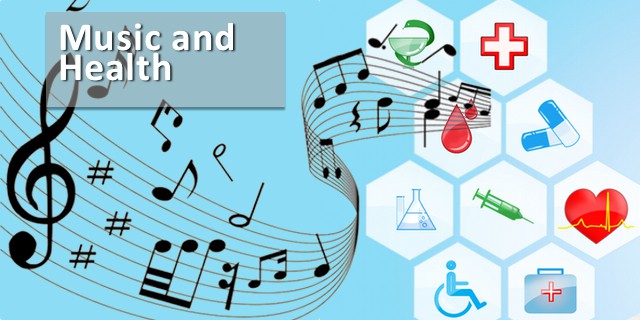Benefits of music on health are what every music lover would want to know, and if you’re one of them, then you’re in the right place because this article has answers to that. Charles Darwin once remarked, “If I had my life to live over again, I would have made a rule to read some poetry and listen to some music at least once every week.” Albert Einstein declared, “If I were not a physicist, I would probably be a musician.” Jimi Hendrix called music his “religion.”
I’ve always been in awe of people who can sing and play the guitar. As a young girl, I secretly listened to singer-songwriter music in my bedroom into the wee hours. As a rebellious teenager, I cranked rock ‘n’ roll in the house whenever I had to do chores. I always felt great afterwards – now I know why.
Recent research shows that listening to music improves our mental well-being and boosts our physical health in surprising and astonishing ways. If we take a music lesson or two, that musical training can help raise our IQs and even keep us sharp in old age.1
Benefits Of Music On Health
Here are some of the scientifically proven benefits of music on health, viz:
- Stimulates Mood
- Ease Stress
- Reduces Anxiety
- Stimulates Exercise
- Enhance Memory
- Reduces Pain
- Gives Comfort
- Helps Children With an Autism Spectrum Disorder
- Soothes Premature Babies
- Etc.
Stimulates mood: Studies show that listening to music can benefit overall well-being, help regulate emotions, and create happiness and relaxation in everyday life.
Eases stress: Listening to ‘relaxing’ music (generally considered to have slow tempo, low pitch, and no lyrics) has been shown to reduce stress and anxiety in healthy people and in people undergoing medical procedures (e.g., surgery, dental, colonoscopy).
Reduces anxiety: In studies of people with cancer, listening to music combined with standard care reduced anxiety compared to those who received standard care alone.
Stimulates exercise: Studies suggest that music can enhance the aerobic exercise, boost mental and physical stimulation, and increase overall performance.
Enhance memory: Research has shown that the repetitive elements of rhythm and melody help our brains form patterns that enhance memory. In a study of stroke survivors, listening to music helped them experience more verbal memory, less confusion, and better-focused attention.
Eases pain: In studies of patients recovering from surgery, those who listened to music before, during, or after surgery had less pain and more overall satisfaction compared with patients who did not listen to music as part of their care.
Gives comfort: Music therapy has also been used to help enhance communication, coping, and expression of feelings such as fear, loneliness, and anger in patients who have a serious illness, and who are in end-of-life care.
Enhances cognition: Listening to music can also help people with Alzheimer’s recall seemingly lost memories and even help maintain some mental abilities.
Helps children with an autism spectrum disorder: Studies of children with autism spectrum disorder who received music therapy showed improvement in social responses, communication skills, and attention skills.
Soothes premature babies: Live music and lullabies may impact vital signs, improve feeding behaviours and sucking patterns in premature infants, and may increase prolonged periods of quiet–alert states.2
It helps people eat less: Playing soft music in the background (and dimming the lights) during a meal can help people slow down while eating and ultimately consume less food in one sitting.
Conclusion!
Music can improve mood, decrease pain and anxiety, and facilitate opportunities for emotional expression. Research suggests that music can benefit our physical and mental health in numerous ways. Music therapy is used by our hospice and palliative care board-certified music therapist to enhance conventional treatment for a variety of illnesses and disease processes – from anxiety, depression and stress, to the management of pain and enhancement of functioning after degenerative neurologic disorders.3



[…] The simplicity of it adds to the recreational and sentimental value of such trips. Plus, like other recreational activities, road trips give you several health benefits as […]